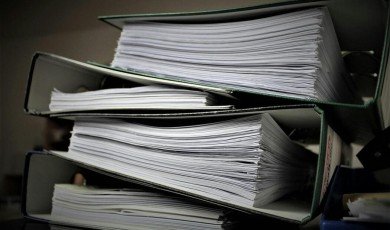
How Governments Use Certified French Translation Services for Policy and Legal Documentation
As our world becomes increasingly interconnected, the importance of accurate and reliable translation has never been greater. For governments navigating the intricate domains of international laws, trade tariffs, and political cooperation, certified French translation services are indispensable. This article dives into the vital role these services play in crafting policy and legal documentation, ensuring smooth diplomacy, and upholding international standards.
Introduction: The Need for Accuracy and Precision
French is more than just a beautiful language; it is a diplomatic powerhouse, widely used across global institutions such as the United Nations, the European Union, and many regional organizations in Africa and Canada. When it comes to crafting policies or forming trade agreements, many nations must rely on certified French translation services to ensure every word counts. Errors in translation can lead to diplomatic incidents, legal disputes, or costly trade miss-steps.
Moreover, the French language is notorious for its grammatical intricacies and cultural nuance, making precise translation both a skill and an art form. Professional and certified French translation services are vital to bridge language gaps and foster clear communication between governments, traders, and legal entities.
Main Research: The Critical Role of Certified French Translation Services
1. Policy & Legal Documentation: The Foundation of International Relations
Governments draft, amend, and enforce a wide range of documents, from international treaties to municipal bylaws. For countries with French-speaking populations or trade partners, it is essential to have these documents accurately translated. Certified French translators play a pivotal role by:
- Ensuring that policy language is consistent across translations
- Maintaining legal accuracy to prevent loopholes or misinterpretation
- Conveying the intent and spirit of the original document
In the context of trade tariffs, for example, imprecise terminology can mean the difference between compliance and a costly legal battle. All tariff codes, regulatory guidelines, and tax exemptions must be translated with absolute precision to avoid misapplication by customs officials or international trade partners.
2. Legal Requirements: Certification and Official Recognition
Many countries require translated legal documents to be certified. Certification generally involves a sworn statement from the translator or translation agency confirming the translation’s accuracy and completeness. This seal of authenticity is a guarantee that:
- The translation is recognized by courts and government bodies
- It meets the country’s legal standards for evidence and record-keeping
- It is suitable for official acts, such as citizenship applications, legal disputes, or international agreements
Failing to use a certified translator can result in documents being rejected, causing delays in sensitive processes such as extradition, cross-border trade, or diplomatic negotiations.
3. Addressing Linguistic Challenges: Why French Needs Experts
The French language poses unique challenges, stemming from its complex grammar, regional dialects, and legal terminology. An exploration of why French is considered a complex language to translate reveals that without deep expertise, translators risk introducing mistakes that undermine the intended meaning.
For example, the difference between legal synonyms such as “décret,” “loi,” and “règlement” matters deeply in French law. Regional differences between Metropolitan French and Canadian or African French add further complexity, making it essential for governments to hire professionals with both legal acumen and linguistic proficiency.
4. Building Trust and Transparency in International Affairs
In policy-making and treaty negotiations, every clause is intentional. Certified French translation services go beyond word-for-word transposition; translators must also capture context, tone, and intent. This level of professionalism fosters trust among all parties, as each government can be confident that what was agreed upon is faithfully represented in both languages.
This is particularly important in multilateral agreements, where multiple jurisdictions come together to align on a single document, such as those involving trade tariffs, environmental standards, or human rights commitments.
5. Policy Impact: Trade, Tariffs, and Global Cooperation
The impact of French translations is felt acutely in global trade. France, Canada, parts of Africa, and the European Union play pivotal roles in setting international tariffs and economic policies. Documents like customs protocols, trade agreements, and product regulations must be precisely translated so that:
- Exporters and importers fully understand compliance requirements
- Tariff schedules are transparently communicated to stakeholders
- Bilateral or multilateral trade arrangements are honored according to the letter—and spirit—of the law
For instance, the European Union’s Common External Tariff requires member states to harmonize their policies and documentation in all working languages, with French among the most prominent. When negotiating new trade corridors or revising tariffs, nations depend on accurate translations to safeguard their interests.
6. Risk Mitigation and Dispute Resolution
In international law, ambiguity can be a weapon or a liability. When disagreements arise, courts and arbitrators scrutinize official translations to determine what was truly agreed upon. Certified French translation services minimize risks by:
- Providing incontrovertible evidence of what a document says
- Ensuring consistency of interpretation across legal jurisdictions
- Allowing swift resolution of disputes with less room for ambiguity
Thus, high-quality translations are not just bureaucratic formalities—they are strategic assets in a state’s diplomatic toolkit.
Conclusion: The Essential Partner for Modern Governance
In the ever-evolving arena of news, politics, and trade, governments are only as effective as their ability to communicate. Certified French translation services are the unseen enablers of cross-border policy, legal compliance, and robust diplomatic relations. They ensure that laws are clear, agreements are honored, and international cooperation thrives on a foundation of mutual understanding.
Whether you are a policy maker, legal advisor, or trade negotiator, choosing the right translation partner is not optional—it is essential. Not only do these services guarantee accuracy and certification, but they also bring peace of mind in the high-stakes world of international governance.
As governments continue to grapple with complex tariffs, evolving laws, and global agreements, the value of certified French translation services will only grow. In this context, finding a reliable, professional French translation service provider is a strategic move for any organization operating on the world stage.
In conclusion, the next time you see a major international policy announcement or trade agreement covered in the news, remember the crucial work happening behind the scenes—thanks in no small part to expert translators bridging worlds through language.








